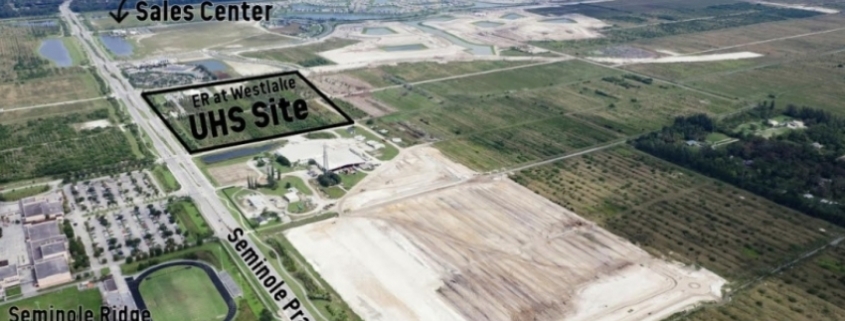Ciaran Ryan of Moneyweb was recently joined by Justin Clarke, the chief operating officer for OrbVest that was set up to simplify investment into offshore commercial real estate. OrbVest has a particular niche in the United States around medical real estate,
In a podcast, Mr. Ryan and Mr. Clarke discussed why the market is so attractive, and why it should be attractive to South African investors.(Listen to the podcast ‘The Attraction Of The Medical Real Estate Market In The U.S.’, by clicking here.)
Ciaran Ryan: Justin, welcome.
Justin Clarke: Ciaran, thanks for having me on again.
Ciaran Ryan: Let’s just pick up where we left off yesterday. For people who may not have heard the first one, what is it that is attractive about the medical real estate market in the United States? And maybe you can cover what states in particular you are looking at.
Justin Clarke: A great place to kick off. I think the thing is with any type of commercial or industrial investment that you make in property, you have to look at the ultimate exits. Return is great, cash on cash is great, the way it is when you want to sell the asset at the end of the day.
If you look at the disruption that is happening as a result of technology, some of it is negative for real estate, for example retail. We know that most retail moving online, especially in the US, is super-fast.
What isn’t moving online and how we are being affected differently? That is medical. So, what is happening and why do I say this technology is changing medical? Well, the hospital complexes are having a major decline in in-patients. Why? Because you can go to your local doctor’s rooms and you can have a procedure that previously you would have had to go into hospital for five days for. That is the effect of technology.
So what it’s effectively doing is it is meaning that people don’t have to go to the big hospital complexes; they can go to a local practitioner who specialises in that particular type of service, and hopefully that will be close to the place where you live or work. So this is the kind of decentralisation of the way that medical services are being delivered, and this is directly because of technology.
The other thing, Ciaran, is that you have – in the States specifically – a burgeoning population of baby boomers who are now over 65, and who have money and are reaching the point where they need to see a doctor, say six times more often than people younger than them, as I said in the previous conversation.
So we have a burgeoning population that’s getting older and the technology is making them live longer. And we have this huge amount of people who need lots more medical services than ever before. So we see it that medical has at least a 20-year window of growth, and that’s why we are absolutely hyper-focused on this area.
Ciaran Ryan: It almost sounds like the Uber model being applied to the medical industry in the United States. If technology is coming in and disrupting the hospital business model to that extent, this does open up a door for you – which you are obviously exploiting now.
Justin Clarke: Yes. I like the Uber concept. I’m not quite sure that it fits, but I’ll take that anyway.
Ciaran Ryan: One of the things I did want to ask you was what states and why are you focusing on particular states only.
Justin Clarke: When we looked at where we could apply this medical model, first we followed with countries and ultimately we discussed why we looked at the USA, why we liked the USA. Then in the USA you have bad areas and good areas for medical. There are a number of reasons. But the area that has excited us the most is – if you take Texas, it’s an area they call the Texaplex, and it runs from Fort Worth down past Austin down to San Antonio; it impacts the I-35. And if you draw a line down to Galveston, it includes Houston. That is the Texaplex. I think [the] area has an economy the size of France, to give you an idea. It is quite phenomenal, and it’s only one little sliver of Texas.
We’ve identified certain cities there and certainly Dallas, Fort Worth, where our latest project is. San Antonio. Austin we like a lot. Houston has the biggest medical complexes in the USA, and there is a reason for that. I’m don’t have too much detail, perhaps, but it’s to do with the medical insurance and medical chains that are attached in Texas. So, it means that there’s a huge concentration of medical, specifically in the Houston area.
Because we do talk diversification, we have done our first project in Manalapan, which is just outside New York, in New Jersey state.
Ciaran Ryan: Are there tax benefits to the decision to locate in these particular places – Texas and New Jersey?
Justin Clarke: That is correct. Texas is advantageous for the vendors, not necessarily particularly for us because they are a tax-free state. Very easy to do business and very easy to hire and fire, and that is probably why it’s growing.
I think there are a number of other fundamentals that we look at. Always, if you are looking at commercial real estate too, the fundamentals are: do you have a growing population, and do you have growing GDP? If you’ve got both of those, then the wind is behind you and you can almost make a bad decision and still win. But those are two of our prerequisites. And, if I remember correctly, the growth in that Texaplex area is in excess of 14.5%, which is a good population growth.
Ciaran Ryan: Okay. What you are doing is you are looking for co-investors to come along with you on this ride, and what the investors actually get here is they get an investment in a specific building. It’s not a pooled investment. The historical returns that you’ve been able to achieve are around 2%; it’s not fixed at that, but you did say that there is a little bit of a cushion built into that. But that’s kind of what you are targeting – 2%. In other words 8% per year. And then you would look to exit the investment after five or so years. Is that correct?
Justin Clarke:: That is correct, Ciaran. Basically the thing that we do is we take a building; we identify the building because of the fundamentals. We do not take a chance, we do not buy buildings that are in distress and fix them. That is somebody else’s job. We buy profitable, stable, income-producing assets.
What we do then is we offer them to the markets and we take that investment – and this is a highly regulated environment. So, our IP really is learning and discovering how to do this most efficiently. What we’ve done is we have identified a low-cost exchange; we actually use the Seychelles, it’s called The Merge, and investors invest in it in a public stock on that exchange. So you have an i-frame number. You can look up your stock on Bloomberg, and you have all of that transparency that comes with any bourse in the world. All bourses have to comply with the World Federation of Exchanges and all the necessary operational standards and facts and all that.
So you have the benefit of the exchange, you have the benefit of the transparency, and at the same time it’s a very efficient way of us pooling many investors into one particular investment and being compliant.
Ciaran Ryan: And are the investors able to sell that investment on the Seychelles Stock Exchange if they want?
Justin Clarke:: We purposely have not floated, and that’s why I guess we can use the Seychelles Stock Exchange, which isn’t particularly liquid.
But the disadvantage of a floating equity is because it becomes like a Reit [real estate investment trust] or a property fund, and that means that you are susceptible to the markets. We are anticipating, as I guess a lot of your listeners are, that there will be a recession upcoming in the US, and we want to be recession-proof. So, if you float that equity, the value will be the sentiment of the market and not underpinned by the actual assets. The beauty of a non-floating equity is that the actual value of that equity depends on the underlying asset, which is the building, which because of our long leases it’s not really going to decline.
Two things that contribute to the value of the building – it’s purely your NOI, or your net operating income – in other words, the rental. That’s the expenses, and you multiply that by the capitalisation rate, which is a rate which is established by the market in a particular area.
Those things we don’t anticipate will change a lot in a recession, and that is what is a complete disaster and of course would be more of a temporary thing. But most of our leases are long leases, and that’s why we make sure that we are recession-proof.
Ciaran Ryan: Right. Final question. I presume that these buildings are underpinned by long-term leases – is that correct?
Justin Clarke: Yes. We obviously take them over and then we try and extend the leases. And the beauty of medical is that they are generally quite happy to sign a long-term lease. Think about your local doctor. He generally doesn’t move around a lot, but some additional things could apply in the States.
They have a thing called a Certificate of Need. If you apply for a speciality medical service, you have to do effectively an environmental impact assessment of the need for your particular service in that area. Once you get that thing – it’s extremely expensive to get and it is a time-consuming bureaucratic process – it’s actually pinned to the building. So you can’t leave. So you actually want to secure, because you don’t want to be chucked out after a few years and somebody else comes and takes over the goodwill that you’ve built up. So you try and get a long lease.
To give you an idea of how that works, Medical 25, which is a property that we have just done in Atlanta – we just trundled it out about a month ago – where the average lease period was 17.4 years.
Ciaran Ryan: So 17.4 years. That’s a lot better. Alright, Justin, let’s leave it at that for the moment, I would like to pick up with you in the next one what your outlook is for the real estate market in the United States going forward. You did mention you want to be recession-proof and I’d like to go with you how you exactly are going to go about that. For more information visit www.OrbVest.com. Justin, thanks very much for joining us on this particular podcast.
Justin Clarke: Thanks Ciaran. Look forward to the next one.
Source: Moneyweb





